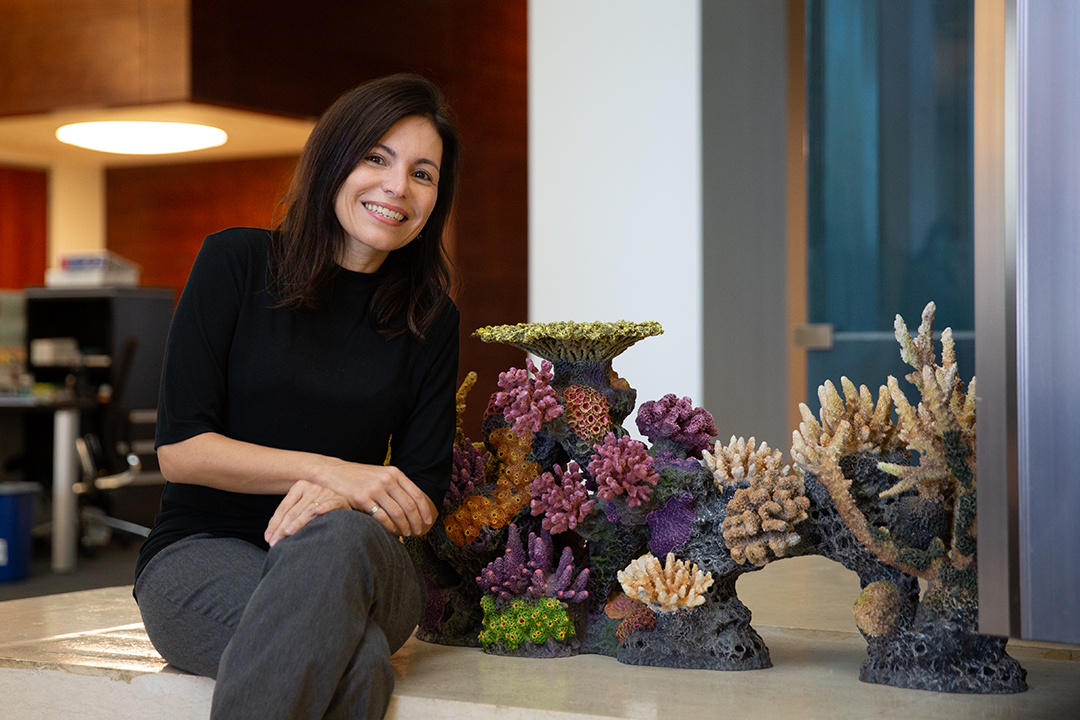KAUST Professor Raquel Peixoto wins inaugural Rachel Carson Prize 2023 for microbiology

Dr. Raquel Peixoto, professor of marine science at KAUST, has been awarded the Rachel Carson Prize for microbiology.
The prize is part of the Applied Microbiology International Awards, which celebrate the brightest minds in the field and promote the research, groups, projects, products and individuals who continue to help shape the future of applied microbiology.
The prestigious scientific prize, named after the American biologist, nature writer and environmentalist Rachel Carson, is awarded to scientists who have used microbiology to help preserve our global ecosystem, to further our understanding of terrestrial life and ocean biodiversity, or to provide direct solutions that conserve and sustainably use marine resources for sustainable development.
Dr. Peixoto was named the winner of the prize at the prestigious EMI lecture 2023, held at BMA House in London on November 16.
“Growing up in Brazil, home to the Amazon rainforest, I experienced first-hand the increasing threats to biodiversity caused by human activity. As an ocean lover — and mother of three surfer and scuba diver kids — I have been focusing my research on protecting corals threatened by climate change,” she said.
“At KAUST in Saudi Arabia, I could boost the fundamental and pioneering research I started in Brazil to prove that microbiome restoration and rehabilitation through probiotics is possible.”
“Already, we have generated baseline data to allow for the creation of the only sustainable medicine currently being considered to protect and restore coral reefs. This nature-based medicine can help to retain native corals in the reef, and, with that, the hundreds to thousands of years these corals take to grow.”
“Our team and collaborators are also leading discussions to expedite the development of this field while ensuring we use the best standards for research, application and risk assessment. We are currently testing the automated application of probiotics in pilot trials in the Red Sea at our specially developed Coral Probiotics Village and investigating the response of the entire reef, within a “One Reef Health” framework,” Dr. Peixoto said.

